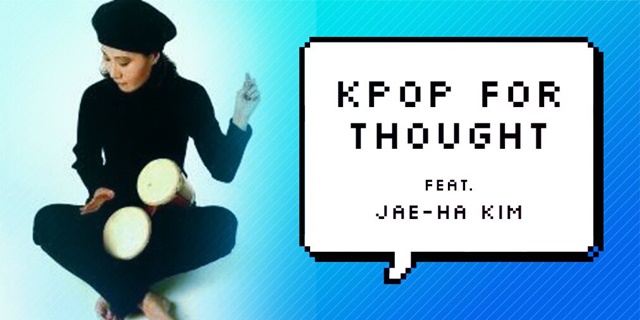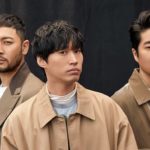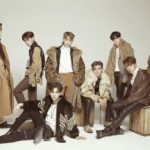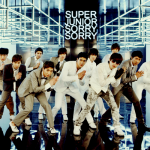
By Jae-Ha Kim
jaehakim.com
August 6, 2018
A month ago, Kpop for Thought contacted me, asking if I would answer a question for her online newsletter about K-Pop. I liked the question and was happy to participate:
This week we have the honour to feature Jae-Ha Kim!
She’s a journalist for the Los Angeles Times, Chicago Tribune, Rolling Stone, and more, as well as a New York Times’ best-selling author. I asked her:
I always see you bonding with your son through K-pop on Twitter, and it’s such an amazing thing. In times where some people say that being over 18 is too old to like pop music, could you talk a bit about your experience as a K-pop fan and mother?
“First of all, thank you so much for the lovely observation! And I’m chuckling, because almost all professional music critics are over the age of 22, and one of their jobs is to cover pop music. While you don’t have to be a fan of a genre to write about it, it certainly can be helpful. Some people might say that adults over 18 should have nothing to do with pop music, but I’d say they’re wrong. To me, that’s like saying people over 18 should never eat ice cream! Preposterous!
K-pop is a genre I’m happy to support, because there was nothing like this when I was growing up as a minority in the United States. I never saw anyone who looked like me on television. And I certainly didn’t hear anyone singing in my native language on the radio. It wasn’t the end of the world, but it did affect how I viewed myself. To this day, I hear men (and women) who say that Asian men aren’t attractive. And I can literally laugh in their face and say: “What? Look at V, Rain, Kai, Shownu, Jin-Young, Hyung-Sik…”
When my son was very young, he would sit on my lap, and we would watch Rain singing “곰 세 마리” (“Three Bears” from the K-Drama “Full House”). It was adorable and comical. We both loved it. It was something we could easily singalong with, too. My nieces were an influence on his musical taste early on. He became a fan of Boyfriend, Sistar, Super Junior and Big Bang. And when PSY‘s “Gangnam Style” hit, everyone at his pre-school recognized that the song was Korean, and so was he.
I know that some fans can get very protective about their favorites and get annoyed if you mention groups other than their favorites. We don’t do that in our household. If you asked my son who is the best K-pop group in the world, he’d say BTS, because that’s whose music he personally loves the most. But if you asked him who else he liked, he’d give you a run-on sentence of groups that would include Jay Park, 2PM, TVXQ, B1A4, Eric Nam, Super Junior, SHINee, Monsta X, Henry, G-Dragon, Teen Top and EXO-M (he prefers the Chinese songs to the Korean ones). He doesn’t love K. Will or Epik High (yet), but he will listen to them, because I love them. (I’m hoping their songs will have more relevance to him as he grows older.)
It’s not always easy for a child to grow up as a minority. They are at an age when they want to fit in and not stand out for being different. So for my son to see BTS winning accolades on American awards shows… to know that the whole world watched EXO perform at the Olympics … to hear Eric Nam live in concert singing in both Korean and English … I think he knows that it is just an awesome time to be Korean.
I used to say that I wish K-pop had been around when I was a child. I felt that I missed out on so much. But when I really think about it, I’m glad that I’m able to enjoy K-pop with my child. It really is fun seeing and hearing things through the eyes of someone who is not yet jaded.
Yesterday, I received an email from a Korean adoptee, who said she never really thought that much about her Korean heritage. Last year, she read one of my BTS articles, which was the impetus for her to explore other Korean groups. When she saw BTS perform on the American Music Awards, she teared up, because she recognized in them a part of her history. This year, she will be returning to Korea for the first time.
This is why seeing yourself represented matters so much to so many people. And this is why I am really glad that K-pop is so accessible and embraced by people worldwide.”
Thank you so much for these beautiful and important words, Jae. I got goosebumps reading. It makes me so happy to see K-pop grow and finally have more representation out there, hopefully the next generations will suffer a bit less. I’m not Korean, but K-pop certainly has changed my life and opened my mind to many things, so I’m infinitely thankful.
And yes, I roll my eyes so hard everytime I see someone say “pop is for teenagers”. Oh, people, sometimes they are out of their minds.
Don’t forget to check out Jae-Ha’s website for more of her amazing and extensive work, as well as her Twitter (which is full of lovely stories like the one she wrote about) and Instagram.
#kpopforthought asked me what it’s like being a #KPOP fan/mom. I said, “I used to wish K-pop had been around when I was a child. But I’m glad that I’m able to enjoy it w/my child & get to see things through the eyes of someone who’s not jaded.💜https://t.co/AyjbpaAtsr @_tassia_a pic.twitter.com/cEkJB75188
— Jae-Ha Kim 김재하 (@GoAwayWithJae) August 6, 2018
© 2018 JAE-HA KIM | All Rights Reserved






I really enjoyed reading it! I loved that you were able to share your thoughts on KPop and on raising your son in this day and age when the racial climate is so different. I’m going to have to check out some of the groups you listed!
This article is fantastic. I’m reading it as I’m listening to BAP’s “Zero.” I too have been asked how I can listen to Kpop at my age. I find it such an odd question, as I do not believe musical genres have an age limit.
I cut my teeth on post punk and became spoiled by music with intelligent lyrics and interesting beats. When my daughter discovered KPop I was impressed and began to explore myself. It has been a bonding experience for us, as well.
I learned many years ago that the music I’m listening to can influence my art pieces. Allowing BAP, Got7, Taemin, BTS, or BigBang to blast as I sculpt is AMAZING. It has opened new creative conduits that I do not believe would have blossomed otherwise.
Thanks for your insight. Consider me your newest fan.
Hi Jae, this is something like a “thank you” letter I wanted to write for a while, so I think I’ll just start writing and see what comes out…but I remember seeing one of your articles about BTS I think a year or so back, and I did a double take because I had never been aware of anything Korean so deeply embraced by mainstream American culture before. Since then I’ve been keeping up on your work sporadically, and it was actually because of that article I started looking more into Kpop, simply because I was so curious to see what the fuss was all about. I was adopted when I was 8 months old and grew up in Minneapolis, MN. My parents are German/Norwegian. When I wanted a Barbie that looked like me, my mom had to buy (a Japanese I think) Barbie from the “Around the World” collection. My parents have always been open about my history and where I came from. She said when I was younger, two kids at the bus stop started teasing me once, chanting, “Chinese! Japanese! Chinese! Japanese!” and I turned around yelled, “I’m not Chinese or Japanese, I’m KOREAN!” and they shut up, wide eyed. Although of course I really had no idea what Korean even meant.
I have always considered my Korean roots as something I was, but didn’t really connect with. After all, growing up, what did I have to connect with? There wasn’t a Korean population around me, and like I said, growing up in the 80s-90s didn’t provide much mainstream culture to identify with. But when I saw the the BTS debut at the AMAs, I teared up. I realized that I had been ignoring this part of me too long, and how ironic was it to finally see my roots so widely embraced by American culture before I could embrace it myself? I felt guilty/sad/moved/happy.
Anyways within the last few weeks my friends and I have decided Seoul is the destination of our first international trip and I’m so excited to explore my roots. So I just wanted to thank you for helping spark this journey. Sometimes it takes the smallest thing to start the biggest change, and I really think that article about a pop music boy band was the start of something much more valuable, for me personally.